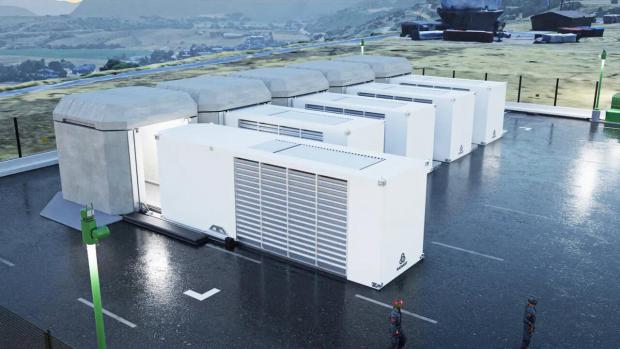
Breaking News
 Will Trump End Sham Democracy Promotions?
Will Trump End Sham Democracy Promotions?
 Review: Thumb-sized thermal camera turns your phone into a smart tool
Review: Thumb-sized thermal camera turns your phone into a smart tool
 Americans stranded in Jamaica plea for help as 'worst ever hurricane' to slam Caribbean isla
Americans stranded in Jamaica plea for help as 'worst ever hurricane' to slam Caribbean isla
 Urgent warning to Gmail users as 183 MILLION passwords are stolen in data breach...
Urgent warning to Gmail users as 183 MILLION passwords are stolen in data breach...
Top Tech News
 Graphene Dream Becomes a Reality as Miracle Material Enters Production for Better Chips, Batteries
Graphene Dream Becomes a Reality as Miracle Material Enters Production for Better Chips, Batteries
 Virtual Fencing May Allow Thousands More Cattle to Be Ranched on Land Rather Than in Barns
Virtual Fencing May Allow Thousands More Cattle to Be Ranched on Land Rather Than in Barns
 Prominent Personalities Sign Letter Seeking Ban On 'Development Of Superintelligence'
Prominent Personalities Sign Letter Seeking Ban On 'Development Of Superintelligence'
 Why 'Mirror Life' Is Causing Some Genetic Scientists To Freak Out
Why 'Mirror Life' Is Causing Some Genetic Scientists To Freak Out
 Retina e-paper promises screens 'visually indistinguishable from reality'
Retina e-paper promises screens 'visually indistinguishable from reality'
 Scientists baffled as interstellar visitor appears to reverse thrust before vanishing behind the sun
Scientists baffled as interstellar visitor appears to reverse thrust before vanishing behind the sun
 Future of Satellite of Direct to Cellphone
Future of Satellite of Direct to Cellphone
 Amazon goes nuclear with new modular reactor plant
Amazon goes nuclear with new modular reactor plant
 China Is Making 800-Mile EV Batteries. Here's Why America Can't Have Them
China Is Making 800-Mile EV Batteries. Here's Why America Can't Have Them
Army To Bring Nuclear Microreactors To Its Bases By 2028

The addition of nuclear power will diversify the energy sources available on military bases and provide a critical enhancement to their resiliency, the Army says.
"What resilience means to us is that we have power, no matter what, 24/7," Dr. Jeff Waksman, Principal Deputy Assistant Secretary of the Army for Installations, Energy and Environment, said during a media roundtable attended by TWZ at last week's Association of the U.S. Army's (AUSA) main annual conference.
Waksman's comments followed a briefing earlier in the day at which Army Secretary Daniel P. Driscoll and Department of Energy (DOE) Secretary Christopher Wright jointly announced the launch of the Janus Program.
"The U.S. Army is leading the way on fielding innovative and disruptive technology," Driscoll said. "We are shredding red tape and incubating next-generation capabilities in a variety of critical sectors, including nuclear power."
Janus is the Army's plan to realize President Donald Trump's Executive Order 14299, titled "Deploying Advanced Nuclear Reactor Technologies for National Security," which directs the Department of War to commence operation of an Army-regulated nuclear reactor at a domestic military installation no later than September 30, 2028.
Some time in the next few weeks, barring a long extension of the government shutdown, the Army will release an Area of Interest (AOI) solicitation with a draft request for proposals (RFP) attached, according to Waksman. An industry day event thereafter will give the Army feedback on potential microreactor approaches and contact with interested companies and startups.
A competition will follow, after which the Army expects to select multiple companies to build and deliver microreactor prototypes to an initial batch of base/installation sites (likely nine sites) yet to be determined. The companies selected will each be given one Army site to deliver their prototypes to, and each firm will be required to build two reactors.
"They will build one, and then in a staggered fashion, build a second," Waksman explained. "The reason why we're doing that is because you have to get to Nth-of-a-kind to have a commercial product. [By Nth-of-a-kind Waksman means multiple units of a product or, in this case, reactor.] We want to see that these companies have a path to get from their first prototype to the second one and beyond to the Nth-of-a-kind."

 China Innovates: Transforming Sand into Paper
China Innovates: Transforming Sand into Paper

